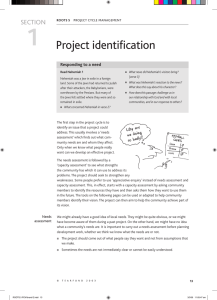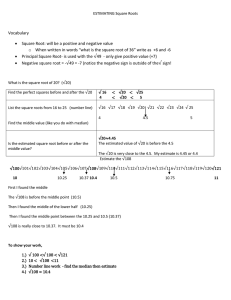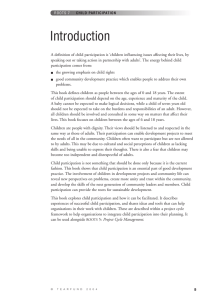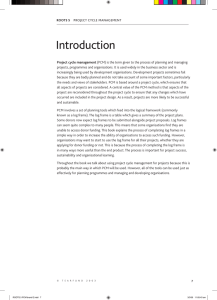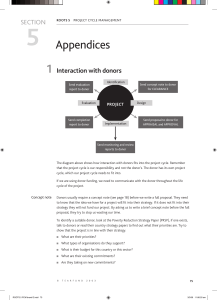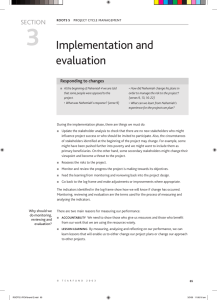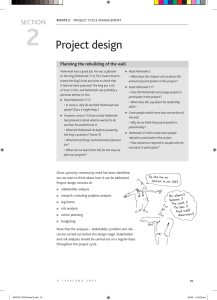Glossary
advertisement
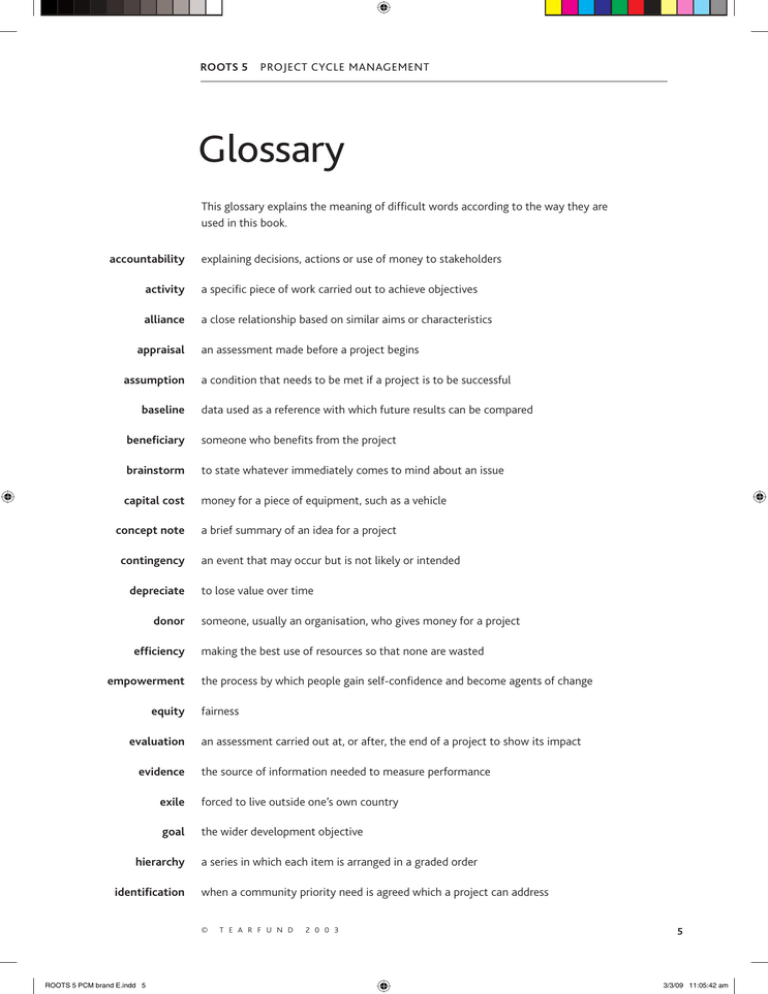
ROOTS 5 PROJECT CYCLE MANAGEMENT Glossary This glossary explains the meaning of difficult words according to the way they are used in this book. accountability explaining decisions, actions or use of money to stakeholders activity a specific piece of work carried out to achieve objectives alliance a close relationship based on similar aims or characteristics appraisal assumption baseline an assessment made before a project begins a condition that needs to be met if a project is to be successful data used as a reference with which future results can be compared beneficiary someone who benefits from the project brainstorm to state whatever immediately comes to mind about an issue capital cost money for a piece of equipment, such as a vehicle concept note contingency depreciate donor efficiency empowerment equity evaluation evidence a brief summary of an idea for a project an event that may occur but is not likely or intended to lose value over time someone, usually an organisation, who gives money for a project making the best use of resources so that none are wasted the process by which people gain self-confidence and become agents of change fairness an assessment carried out at, or after, the end of a project to show its impact the source of information needed to measure performance exile forced to live outside one’s own country goal the wider development objective hierarchy identification a series in which each item is arranged in a graded order when a community priority need is agreed which a project can address © ROOTS 5 PCM brand E.indd 5 T E A R F U N D 2 0 0 3 5 3/3/09 11:05:42 am ROOTS 5 implementation indicator key informant logical framework manipulated PROJECT CYCLE MANAGEMENT when a project is actually carried out a sign showing progress towards achieving objectives a person who is able to provide information on a particular subject (log frame) a table which gives a summary of project plans controlled or influenced in a negative way monitoring a continuous process of measuring progress towards objectives needs assessment the process of identifying and understanding people’s needs NGO objective output participation purpose qualitative indicator non-governmental organisation a general word used for a desired change what a project actually produces, coming from completed activities the involvement of people in the decisions and processes that affect their lives the specific change that the project will make to contribute to the goal where words are used to describe changes quantitative indicator where numbers are used to measure changes review an occasional assessment of project progress risk the chance of something bad happening running cost money for ongoing needs, such as fuel stakeholder a person with an interest in, or concern for, a project that an organisation carries out sustainability terms of reference transparency variance verifiable 6 ROOTS 5 PCM brand E.indd 6 when the benefits of a project continue a document outlining what is expected of a person’s or an organisation’s piece of work open communication and decision-making the difference between what was budgeted and what is actually spent something which can be proved as true T E A R F U N D R O O T S R E S O U R C E S 3/3/09 11:05:42 am


